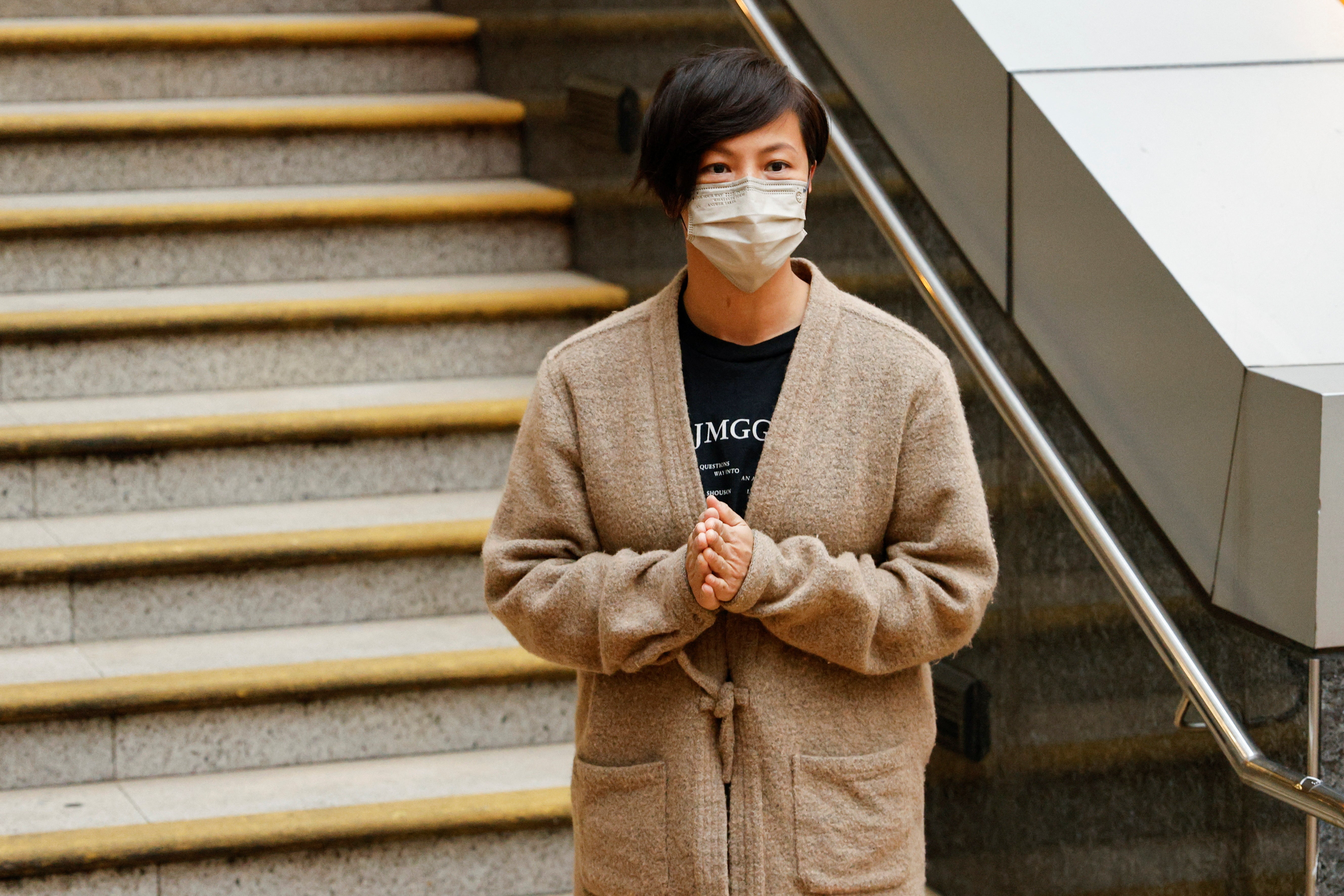‘Truly scary’: Why the raid on Stand News represents a new low for Hong Kong press freedom
Experts predict the authorities could now turn their attention to foreign media in the city

More than six months after Hong Kong’s biggest pro-democracy newspaper was forced to shut down, the closure of Stand News, another iconic pro-democracy media outlet, is seen as another body blow to press freedom in Hong Kong.
On Wednesday, 200 police raided its headquarters and arrested seven people. The website announced its closure and on Thursday two of its staff – reported to be former senior editors – were charged with sedition.
Known for its coverage of large-scale protests in Hong Kong as well as producing in-depth investigative projects, Stand News was an obvious target, and the Chinese authorities saw it as a challenge. It has been accused of publishing “seditious content” between June 2020 and November 2021 by the senior superintendent of the Police National Security Department in Hong Kong, Steve Li, who claimed in a press conference: “There is strong evidence showing that this online media and other so-called ‘international front’ [activists] conspired to incite hatred towards the government, and endangered national security through its platform.”
Experts and activists view the closure of Stand News as both predictable and worrying.
“While the evidence highlighted in the Apple Daily case was mainly opinion articles, police cited news reports as part of the ‘seditious content,’” said Eric Lai, Hong Kong law fellow at Georgetown University’s Center for Asian Law. “It’s a blow to press freedom in Hong Kong.”
“I feel like this is an attempt to turn Hong Kong into a black box where nothing can go in and out,” says Glacier Kwong, a political activist in exile in Germany. “This is also to hinder anyone from investigating the authorities, which is doing critical journalistic works. Without these media outlets, there is no room for these investigations to happen.”
On Tuesday, prosecutors in the city added an additional charge of “publishing seditious content” to Jimmy Lai and seven other former Apple Daily employees.
“Since sedition charges offer a much broader interpretation... than the national security law (NSL) it’s a much easier tool for the government to silence local or foreign media outlets,” Eric Lai told The Independent.
“Wednesday’s arrest also reveals that the Hong Kong government has become more hostile towards media and press freedom.”
Glacier Kwong points out that since the Hong Kong government has emphasised that the NSL can’t be applied retroactively, sedition charges allow authorities to trace the media outlet’s publication back to 2019 or even earlier. “This is one example of how authorities in Hong Kong use different laws to ensure the stability of the regime,” she told The Independent.
For press freedom defenders, the closure of two Hong Kong media outlets in 2021 reflects the Chinese authorities’ intolerance of criticism.
“The plan of the Chinese regime is to make sure that, in the future, the level of press freedom in Hong Kong is not much higher than how it is now in China, which is truly scary,” says Cedric Alviani, the East Asia Bureau head for Reporters Without Borders.
“I’m afraid that this could be only the beginning of the downfall and there might be a moment when it wouldn’t be necessary to rank Hong Kong separately on the World Press Freedom Index due to the fact that the level of press freedom would be similar to China. I truly fear this moment.”
And while some fear that the loss of independent media in Hong Kong will create a chilling effect among people in the city, they also believe journalists in Hong Kong are not ready to give up just yet.
“When reporters at the Stand News were interviewed by foreign media today, they said they would stay in Hong Kong because they wanted to stay until the end and they wanted to do their jobs as journalists,” says Glacier Kwong.

“As the protest in 2019 has shown, Hong Kongers are very creative, and with the help of technology and a lot of different tools, there are still ways to preserve Stand News’ content, even if it’s not as visible as before,” she adds.
However, since the police used the implementation rules of the NSL to freeze Stand News’ assets and search its headquarters, Eric Lai thinks that foreign media outlets with assets or operations in Hong Kong would still face the risk of being targeted by the government through charges or laws that are not part of the NSL.
“These foreign media outlets would still have the risk of being searched or raided or arrested once the government regards them as endangering national security or promoting sedition,” he told The Independent.
Join our commenting forum
Join thought-provoking conversations, follow other Independent readers and see their replies
Comments


Bookmark popover
Removed from bookmarks